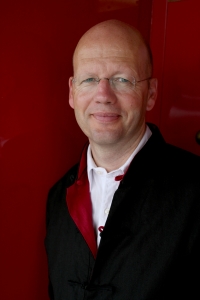The Art of Hearing Heartbeats Discussion Guide: Home
Articles, Interviews, and Reviews
- The Gift of HeartbeatsThe Huffington Post, February 16, 2012
- The Art of Hearing Heartbeats Goodreads ReviewsGoodreads.com
Other Works by Jan-Philipp Sendker
Interviews with Jan-Philipp Sendker
Discussion Questions
(From ReadingGroupGuides.com)
1. In your opinion, what does the back-and-forth between Julia’s and U Ba’s narratives add to the telling of the love story between Tin Win and Mi Mi? How do these stories interrelate?
2. Tin Win is born to parents who abandon him as a child but Mi Mi is born into a close-knit family. Mi Mi’s mother, especially, adores her daughter. Do you see this developmental difference reflected in the adult each one becomes, or in the way the two relate to one another?
3. After he loses his sight, Tin Win spends several years in a monastery under the tutelage of the abbot, U May. In your opinion, what does U May model for Tin Win? How does Tin Win grow in these years?
4. Tin Win’s wealthy uncle, U Saw, finances Tin Win’s eye operation and subsequent education abroad. But to U Saw’s discredit, his motives are self-interested, and for his own convenience, he obstructs all communication between Tin Win and Mi Mi. Is U Saw portrayed as a villain --- or is he even villainous?
5. A portion of the novel is in the form of letters. Does this change the mood or the flow of the novel? The way you see the characters?
6. Tin Win and Mi Mi develop an intense, literally symbiotic relationship: he walks for her; she acts as his eyes. They become inseparable, but then they are separated for decades. Given what you know about each character, how do you think they are able to withstand the time apart?
7. Discuss the role of memory in the novel, both individual and collective.
8. Burma (now known as Myanmar) was occupied by the British from the nineteenth century until 1948. How important is this colonial history to the major events of the novel?
9. Prophecy and superstition play a significant role in Burmese culture. Do you think this belief system inspires a fundamental feeling of security or of anxiety in the main characters of the novel, and why?
10. The novel contrasts Western and Eastern values: individualism and personal achievement versus kinship and transcendence. Where and how are these differences brought to light?
Reserve a copy
The Art of Hearing Heartbeats by
ISBN: 9781590514634
Suggestions for further reading
If you liked The Art of Hearing Heartbeats you may also enjoy...
The Shoemaker's Wife by
ISBN: 9780061257094Enza, a practical beauty, and Ciro, a strapping mountain boy, meet as teenagers. At the turn of the last century, when Ciro catches the local priest in a scandal, he is banished from his village and sent to hide in America. Without explanation, he leaves a bereft Enza behind. Soon, Enza's family faces disaster and she, too, is forced to go to America with her father to secure their future. Unbeknownst to one another, they both build fledgling lives in America, Ciro masters shoemaking and Enza takes a factory job until fate intervenes and reunites them.The Lost Wife by
ISBN: 9780425244135In pre-war Prague, the dreams of two young lovers are shattered when they are separated by the Nazi invasion. Then, decades later, thousands of miles away in New York, there's an inescapable glance of recognition between two strangers. Providence is giving Lenka and Josef one more chance.The Last Storyteller by
ISBN: 9781400067855Ireland, 1956. The national mood is downtrodden; poverty, corruption, and a fledgling armed rebellion rattle the countryside, and although Ben wants no part of the upstart insurrection along the northern border, he unknowingly falls in with an IRA sympathizer and is compromised into running guns. Yet despite his perilous circumstances, all he can think about is finding his former wife and true love, the actress Venetia Kelly.Crossing the Borders of Time by
ISBN: 9781590514962Leslie Maitland is an award-winning former New York Times investigative reporter whose mother and grandparents fled Germany in 1938 for France, where, as Jews, they spent four years as refugees. This sweeping account of one family's escape from the turmoil of war-torn Europe hangs upon the intimate and deeply personal story of Maitland's mother's passionate romance with a Catholic Frenchman. Separated by war and her family's disapproval, the young lovers-Janine and Roland-lose each other for fifty years. It is a testimony to both Maitland's investigative skills and her devotion to her mother that she successfully traced the lost Roland and was able to reunite him with Janine.

